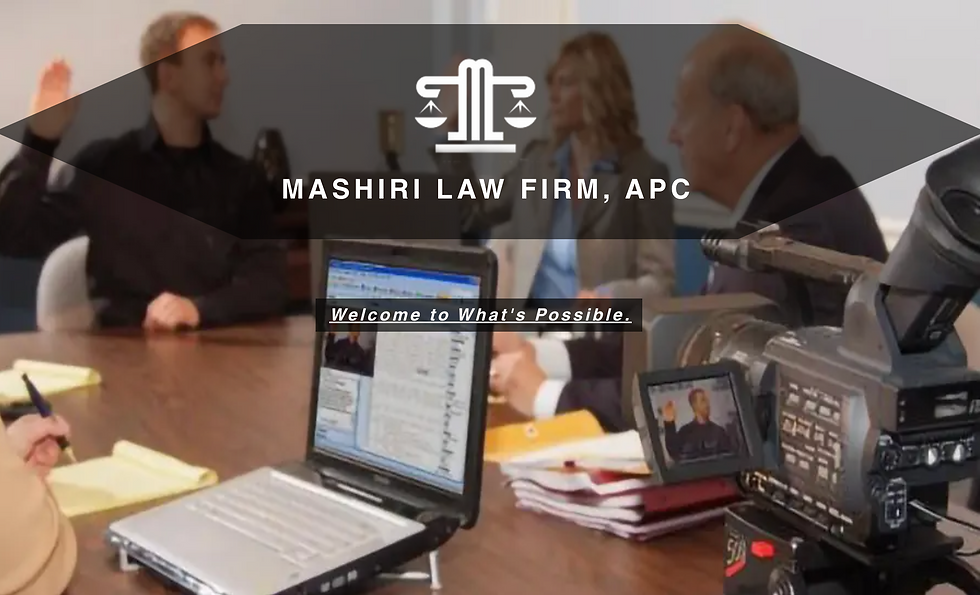Preparing for a Deposition in Your Car Accident Case: Essential Tips and Strategies
- Mashiri Law Firm, APC

- Apr 16, 2023
- 2 min read

A deposition is a crucial stage in many car accident cases, during which witnesses, including yourself, provide sworn testimony under oath. Being well-prepared for your deposition can significantly impact the outcome of your case. In this article, we'll outline essential tips and strategies for preparing for a potential deposition in your car accident case.
1. Consult with Your Attorney:
Your attorney will be your most valuable resource in preparing for a deposition. They can help you understand the deposition process, anticipate questions, and develop strategies for answering them effectively.
2. Review Relevant Documents:
Familiarize yourself with all documents related to your case, including the police report, medical records, and any correspondence with insurance companies. Reviewing these documents will help refresh your memory and ensure that your testimony is accurate and consistent.
3. Practice Your Testimony:
Your attorney may conduct a mock deposition to help you practice answering questions in a similar setting. This practice can help you feel more comfortable and confident during the actual deposition.
4. Be Honest and Concise:
When answering questions during your deposition, it's essential to be honest and concise. Keep in mind that you are generally sworn under penalty of perjury.
5. Stay Calm and Composed:
Maintaining composure during a deposition is crucial. Stay calm and focused, even if the questioning becomes challenging or confrontational. Take your time to consider your answers, and don't hesitate to ask for clarification if a question is unclear.
6. Understand Your Rights:
During a deposition, you have the right to take breaks, consult with your attorney, and correct any errors in your testimony. Be aware of these rights and don't hesitate to exercise them if needed.
Disclaimer: The information provided in this article is for general informational purposes only and should not be considered legal advice. Consult with an attorney for personalized legal advice.


Comments